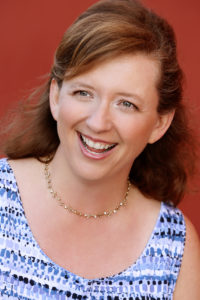Imagine if you will

Where in your life does your imagination play a role? Where does it fall on your priority list? Okay, so I’m not here to cause any panic or self-criticism. As you’re reading this, I gather that the idea of invoking your imagination is now in your field of awareness.
In this edition of Soul Notes, we explore the ways in which imagination can take you to places well beyond what your mind, your intellect, your braniac brain can take you, and why that matters. – Why that matters for you, your loved ones, your law practice, your trial team, your clients, the litigation process and legal system as a whole, and anywhere else that the ripple effects of your presence in the world may produce a valuable result.
I realize that is a tall order, and I’m confident that the tapping into the full extent of our imagination truly is that powerful. I invite you to welcome it in, and to use it as fuel for bringing forth outcomes that are beyond-the-beyond, as I like to say.
I know for me, when I stay too much in my head, I miss out on so much. So, let’s dive deeper:
“Think like a lawyer”
Remember how we were often told that law school purportedly was designed to teach us to “think like a lawyer”? That has its place in our role as lawyers, for sure. Does that, however, make for the best of all possible outcomes? What about our imagination, our intuition, our instincts, our inner knowing…you know, all those things that come from the heart and spirit, our bodies even, and not from our intellect?
What if we were to bring all of ourselves into the practice of law? What if we were to approach litigation, including our early case assessment (ECA) strategies and ideas generated from those processes into play, so as to produce wildly different and dare I say even surprisingly novel results?
Back when I was a law clerk, I was put in charge of ECA on a few of the firm’s incoming cases, including one involving defamation allegations. Upon my initial review of the Complaint, along with spending some quiet time pondering the underlying scenario and fact pattern, and mulling over the details a bit – a line of inquiry led me to pose this question to the lead partner on the case: What if the alleged defamatory statements actually may have improved the plaintiff’s reputation, rather than damaged it? That one question completely turned our ECA on its head, and changed dramatically our defense to the lawsuit, on behalf of our defendant client. In our sometimes rush to draw quick conclusions, we run the risk of missing entirely different angles.
Setting aside time to think (and then some)
Once when traveling for work several years ago, I was reading the in-flight magazine and delved into an article where a CEO was describing how he prioritized his work day, and his work week. He emphasized the importance of and the value he gleaned from blocking out time in his calendar for thinking. He set aside specific hours as purely “think-time.”
I would suggest that we take this concept even further….MUCH further. Let’s decide to extend our analysis beyond the mind and into the feeling and the emotions and the instincts, the “hunches” we may have about something, and following the intuitive bread crumb trails.
Yes, we CAN bring our hearts into the practice of law. For many of us, our hearts (as well as our minds, of course) brought us to law school and to the legal profession, with the intention of making a positive impact in the world. Why should we leave our hearts behind? Why should we compartmentalize ourselves, and so much so that we feel ‘cut off’ from what we’re doing whenever we put our lawyer hat and heels on?
The so-what:
Succumbing to the industry-wide leanings toward intellectualizing the approach to law means we’re not only contorting ourselves to leave our internal, true wisdom behind – we’re also bringing less than the full plate of possible results and outcomes to the table for our clients. And that, I contend, IS a big deal.
Logic will get you from A to B. Imagination will take you everywhere.
– Albert Einstein
Yes, expanding the circle of possibilities may also bring up the dreaded ‘irrelevant’ along with the relevant. Some sifting through the sand may still be required.
The importance of discernment:
Your lawyer brain is still going to be put to good use. Don’t fret. (I can hear your brain protesting already…”But what about thinking like a lawyer? That’s what I sweated through law school for! That’s what my clients pay me for!”) You’ll still need to invoke a certain amount of discernment. You’ll need to make a few (or several) precise demarcations – before proceeding with your case strategy, for example. I’m suggesting, however, that be made from the full array of options that only your imagination can bring to the forefront – and not from the limited array that your brain can come up with on its own.
And, this need not be done solely on your own. Inviting others into your imaginative process can be helpful as well. Inviting in other points of view, and asking the question, “what am I possibly not seeing with regard to this case?” may reap substantial rewards. For more on this, and ways to bring this to your work team or other groups you’re a part of, take a quick view and listen to my short (6-minute) video, here. Also, for more on the ways to facilitate a ‘talking circle’ so that each person’s voice is fully heard, review my previous blog post here.
For your consideration:
What all would be possible, if you evoked and invoked a spirit of imagination in all aspects of your law practice and in your life? Where has your intellect only taken you ‘so far’ and stopped you short of reaching a full understanding of a scenario?
If you need help with this, leave a comment below or book an exploratory session here. Together we’ll see where you can bring more creativity into your law practice.
Okay, your turn:
Where, if at all, do you devote time and space in your day or week, for day dreaming? Or, for creativity? Or, pure imagination? When has going beyond using only your intellect brought you surprising (or at least more creative) results?
I invite you to share your thoughts, feelings, and experiences by leaving a Reply in the Comments section, below. Soul-to-soul!



Leave a Reply
Want to join the discussion?Feel free to contribute!